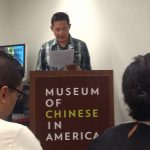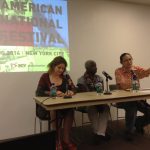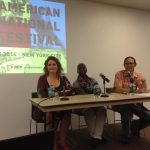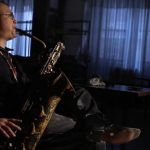FOR IMMEDIATE RELEASE
August 29, 2014
Contact: Tina Matsuoka: (202) 775-9555
The National Asian Pacific American Bar Association (NAPABA) and the Missouri Asian American Bar Association (MAABA) express their deepest sympathies and sorrow to the community of Ferguson, Missouri and to the family and friends of Michael Brown during this time of tragedy and hardship.
As lawyers who have represented underserved and underprivileged clients in North Saint Louis County, we are familiar with the longstanding and mutual distrust between local law enforcement and communities of color in Ferguson. The lack of diversity in the police force, entrenched institutional biases, and disparate treatment suffered in the community have all played a part in the current crisis.
We acknowledge that criminal acts of certain individuals have required the police to respond; however, attacks on peaceful and law-abiding citizens are unacceptable. The police response to the protests in the wake of Michael Brown’s death has been, by any objective measure, heavy-handed. That is why we continue to urge public officials and law enforcement to redouble their efforts to eliminate bias and to safeguard civil liberties. No one should be deprived of their rights of freedom of speech or to peaceably assemble. Reports of attacks on civilians and citizens who were merely exercising their constitutional rights are not only disappointing, they are frightening. President Obama, Attorney General Holder, and other elected leaders should be commended for standing against the excessive use of deadly force and militarization of the law enforcement response in Ferguson.
Still, specific strategies for reforms to prevent future tragedies and ensure social justice are needed. Questions of bias will likely arise regarding the grand jury proceedings surrounding Michael Brown’s death, and we insist that they be conducted with the utmost respect for the tremendous responsibilities and duties borne by the office of St. Louis County Prosecutor, Bob McCulloch. The process must be unimpeachable, thorough, expedient, and transparent. The results must be fair, honest, and just if our community is to heal and for faith in the justice system to be restored.
We also commend the steps taken by local elected officials to increase transparency, communication, and collaboration between and among law enforcement and the community, and in particular our communities of color. Ferguson Mayor James Knowles has recently promised to bolster minority hiring and participation in governance, to recruit African American police officers, and seek to equip all officers with vehicle dashboard and vest cameras. Likewise, City of St. Louis Mayor Slay and Police Chief Sam Dotson should be commended for promptly and sensitively reaching out to community leaders, including pastors, aldermen, and the NAACP, in the wake of another recent but separate shooting by police officers in North St. Louis. They have promised a complete and transparent investigation, and we will be watching.
Therefore, and in spite of the violence in Ferguson we have seen on too many recent nights, we are encouraged and inspired by the efforts of our brothers and sisters there to come together peaceably to exercise their constitutionally protected rights. We are inspired by those of you who have made real contributions to the recovery, relief, and cleanup efforts in Ferguson. We are affected when we see you continue to stand for your principles and beliefs under withering, and often frightening, situations when others were somehow unwilling or unable. We stand behind you, Ferguson.
###
The National Asian Pacific American Bar Association (NAPABA) is the national association of Asian Pacific American (APA) attorneys, judges, law professors, and law students. NAPABA represents the interests of over 40,000 attorneys and approximately 70 national, state, and local bar associations. Its members include solo practitioners, large firm lawyers, corporate counsel, legal services and non-profit attorneys, and lawyers serving at all levels of government. NAPABA engages in legislative and policy advocacy, promotes APA political leadership and political appointments, and builds coalitions within the legal profession and the community at large. NAPABA also serves as a resource for government agencies, members of Congress, and public service organizations about APAs in the legal profession, civil rights, and diversity in the courts.








